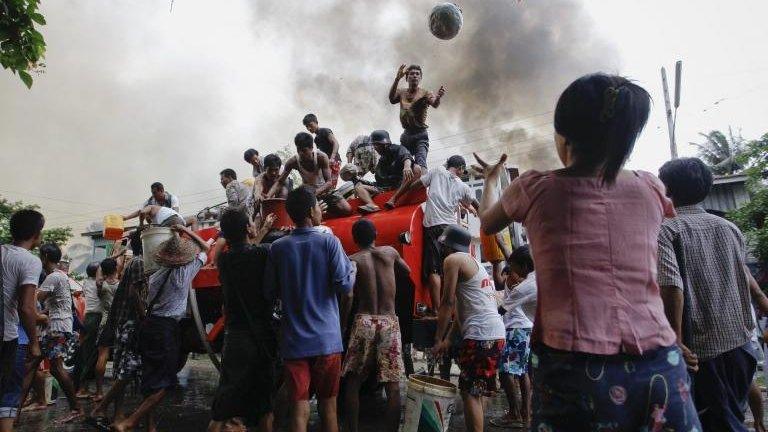Medecins Sans Frontieres allowed to resume Myanmar work
- Published
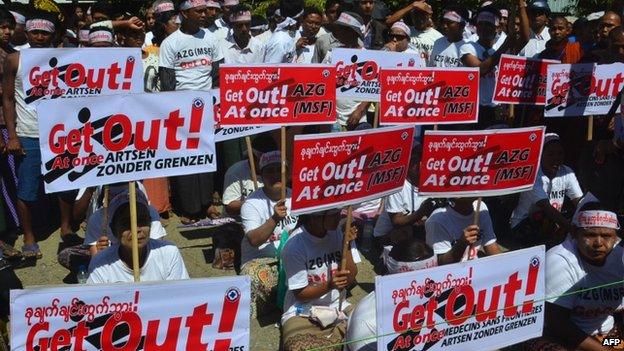
Buddhists in Rakhine state staged protests against Medecins Sans Frontieres in February
Myanmar has allowed the aid agency Medecins Sans Frontieres to reopen its clinics in most of the country, two days after suspending the organisation.
The agency said it remained "extremely concerned", external that it had not been authorised to resume work in Rakhine, a state plagued by sectarian violence.
A presidential spokesman earlier alleged MSF was biased in favour of Rakhine's Muslim Rohingya minority.
The medical body is one of the biggest providers of healthcare in Rakhine.
It provides emergency assistance to tens of thousands of Rohingya people displaced by recent violence.
The United Nations has described the Rohingya as one of the most persecuted minorities in the world. They are considered stateless and are rejected by both Myanmar and neighbouring Bangladesh.
The Rohingya have faced widespread public hostility in Buddhist-majority Myanmar, also known as Burma.
There have been several outbreaks of mass violence against them since June 2012, with tens of thousands fleeing their homes for temporary camps.
'Humanitarian crisis'
MSF said it had been allowed to resume operations in Kachin and Shan states, as well as in the Yangon region, also known as Rangoon.
"Whilst we are encouraged by this and will resume these activities for now, MSF remains extremely concerned about the fate of tens of thousands of vulnerable people in Rakhine state who currently face a humanitarian medical crisis," the agency said in a statement.
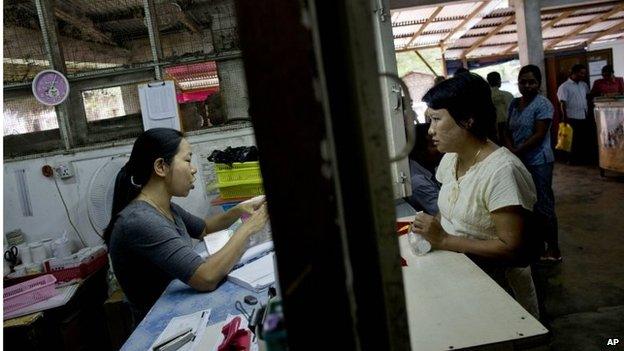
MSF provides healthcare to tens of thousands of people in Myanmar
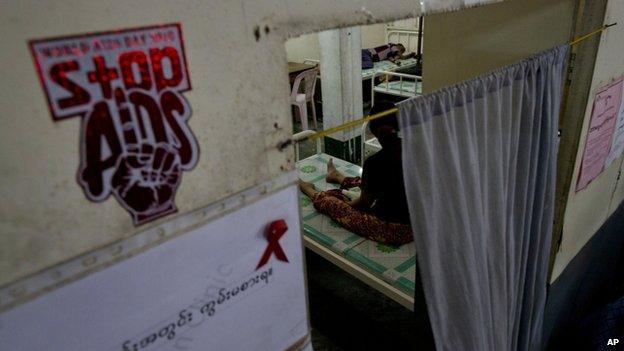
The agency runs treatment centres for HIV/AIDS, one of the biggest diseases in Rakhine state
People in Rakhine are particularly in need of treatment for HIV/ AIDS, malaria and tuberculosis.
The BBC's Jonah Fisher, in Yangon, says MSF is one of the few agencies providing care for Rohingya who would otherwise be turned away from clinics and hospitals.
Authorities ordered MSF to cease its Myanmar operations on Friday.
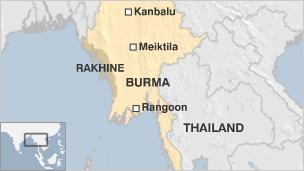
The government has accused the organisation of prioritising the treatment of the Rohingya community over local Buddhists.
The final straw may well have been MSF's statement a month ago that they had treated people after an alleged massacre of Muslims by Buddhists near the border with Bangladesh, our correspondent says.
The government's own investigation found there had been no casualties.
MSF earlier insisted that that its actions were always "guided by medical ethics and the principles of neutrality and impartiality".
The non-profit, self-governed organisation was founded in France in 1971 and won the Nobel Peace Prize in 1999.
- Published25 February 2014
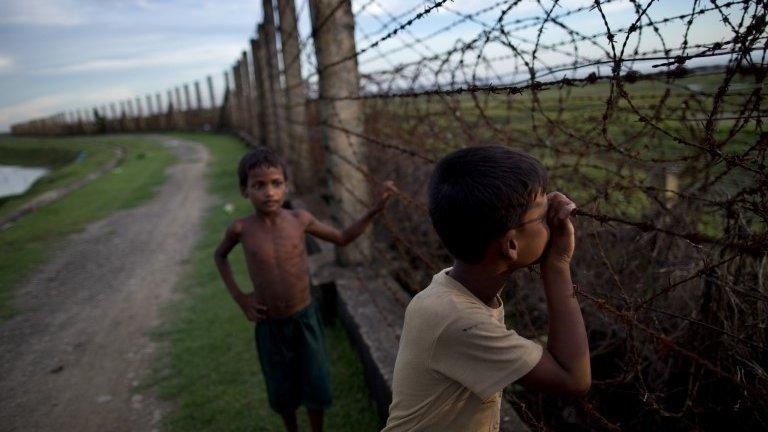
- Published13 February 2014
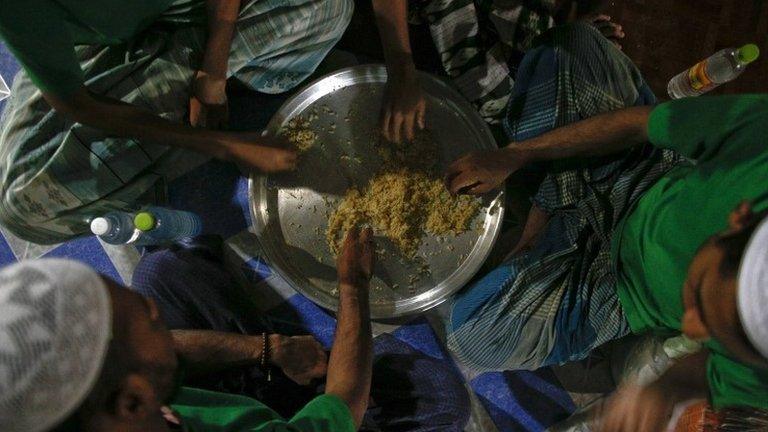
- Published24 January 2014
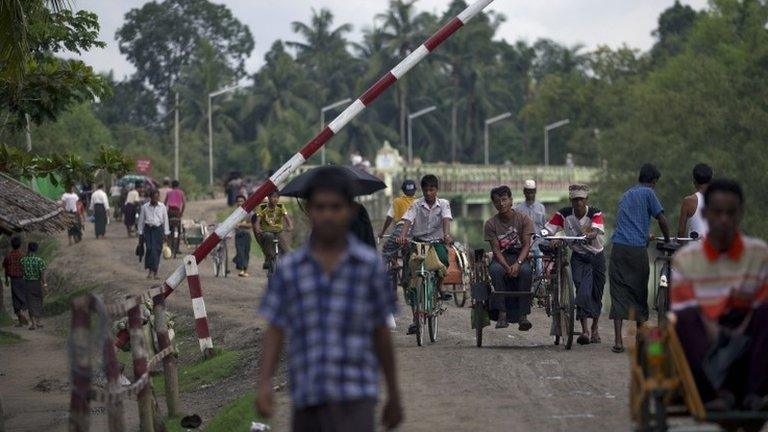
- Published3 July 2014
